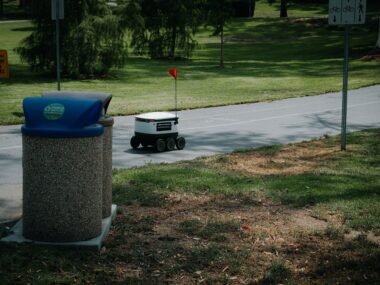Transitioning from military service to civilian life is a significant milestone for veterans. While it opens doors to new opportunities, it also presents unique challenges, particularly in career development. In the UK, veterans possess a diverse range of skills and experiences acquired during their service, making them valuable assets to the civilian workforce. However, navigating the transition and finding meaningful employment can be daunting. This article aims to explore the journey of career development for veterans in the UK, highlighting resources, challenges, and strategies to facilitate their successful integration into civilian careers.
Understanding Veteran Skillsets:
Veterans bring a wealth of skills and qualities to the table, honed through rigorous training and real-world experiences in the armed forces. Leadership, discipline, resilience, teamwork, and adaptability are just a few examples of the invaluable attributes they possess. These qualities are highly sought after by employers across various industries, making veterans well-positioned to excel in civilian roles.
Challenges in Transition:
Despite their transferable skills, veterans often face barriers when transitioning to civilian careers. One of the primary challenges is translating military experience into terms understandable to civilian employers. The terminology and structure of military roles may not align with corporate job descriptions, leading to misunderstandings or undervaluation of skills. Additionally, adjusting to the different pace, culture, and dynamics of civilian workplaces can be challenging for veterans accustomed to the structured environment of the military.
Supportive Resources:
Fortunately, several organizations and initiatives in the UK are dedicated to supporting veteran career development. The Career Transition Partnership (CTP) is one such organization that provides tailored career guidance, training opportunities, and job placement assistance for transitioning service members. Through workshops, networking events, and online resources, CTP helps veterans navigate the job market and connect with potential employers. Furthermore, organizations like the Royal British Legion offer mentorship programs and financial assistance to veterans pursuing further education or vocational training.
Education and Training:
Continuing education and skills development are crucial aspects of veteran career advancement. Many veterans opt to pursue higher education or vocational training programs to enhance their qualifications and expand their career options. Institutions such as the University of London’s Veterans’ Gateway provide academic support, scholarships, and career counseling services specifically tailored to veterans’ needs. By acquiring relevant qualifications and certifications, veterans can further demonstrate their capabilities and competitiveness in the job market.
Networking and Mentorship:
Building professional networks and seeking mentorship are vital strategies for veteran career development. Networking events, industry seminars, and online forums offer opportunities for veterans to connect with employers, recruiters, and fellow professionals. Mentorship programs, where experienced professionals provide guidance and advice, can be particularly beneficial for veterans navigating unfamiliar career paths. Initiatives like the Officers’ Association offer mentoring schemes matching veterans with mentors from their desired industries, facilitating knowledge exchange and career progression.
Entrepreneurship and Self-Employment:
For some veterans, entrepreneurship offers an appealing path to career development and fulfillment. The skills and attributes acquired in the military, such as leadership, problem-solving, and resilience, can translate well into entrepreneurship. Organizations like X-Forces Enterprise provide support and resources for veteran entrepreneurs, including business training, mentorship, and access to funding. Through entrepreneurship, veterans can leverage their unique experiences to create successful businesses while contributing to the economy and their communities.
Overcoming Stigma and Bias:
Despite the valuable skills and experiences veterans bring to the table, they may still encounter stigma or bias in the job market. Misconceptions about PTSD, physical disabilities, or the perceived hierarchical nature of military culture can influence employers’ perceptions of veterans. Combatting these stereotypes requires proactive efforts from both veterans and employers. Veterans can showcase their abilities through well-crafted resumes, professional networking, and interview preparation. Employers, on the other hand, can benefit from diversity and inclusion training to recognize and appreciate the unique contributions of veterans in the workforce.
Conclusion:
Career development for veterans in the UK is a multifaceted journey that requires resilience, adaptability, and support. While transitioning from military to civilian life presents challenges, it also offers opportunities for personal and professional growth. By leveraging their skills, accessing supportive resources, and embracing new opportunities, veterans can forge fulfilling careers beyond the uniform. Through collaboration between veterans, employers, and organizations, we can ensure that veterans’ talents are recognized, valued, and integrated into the fabric of the civilian workforce, enriching both individuals and society as a whole.






